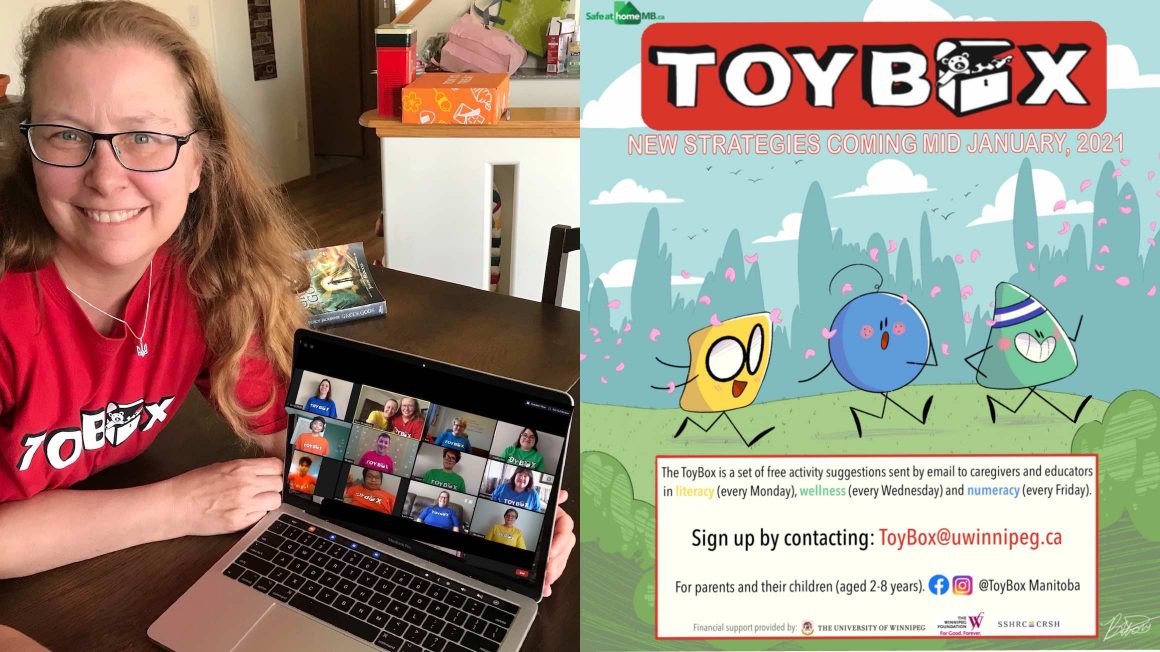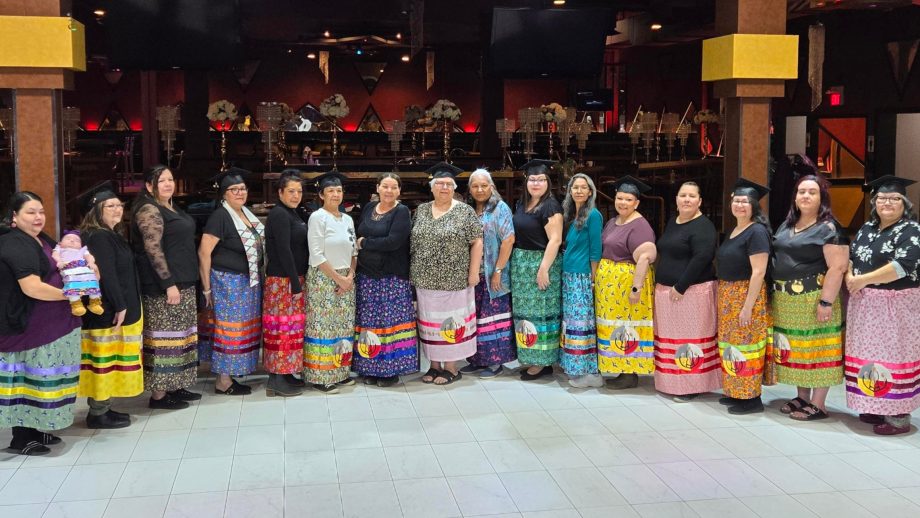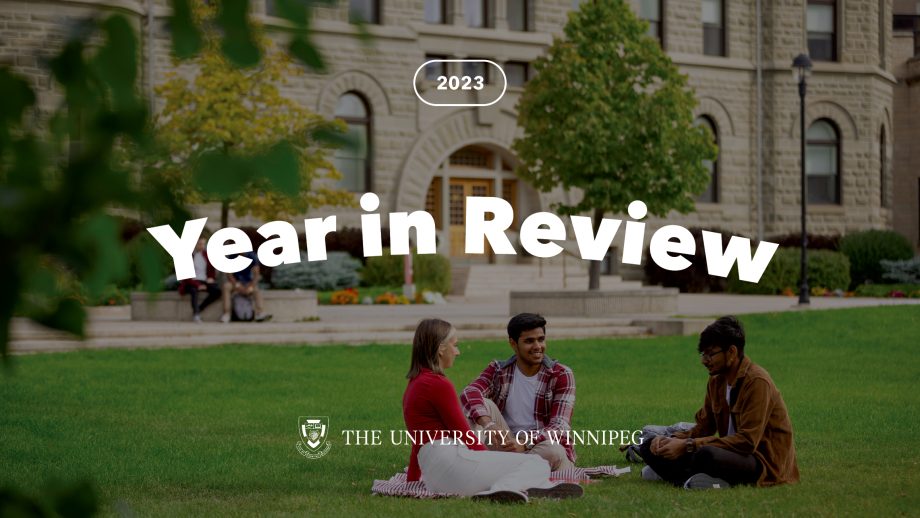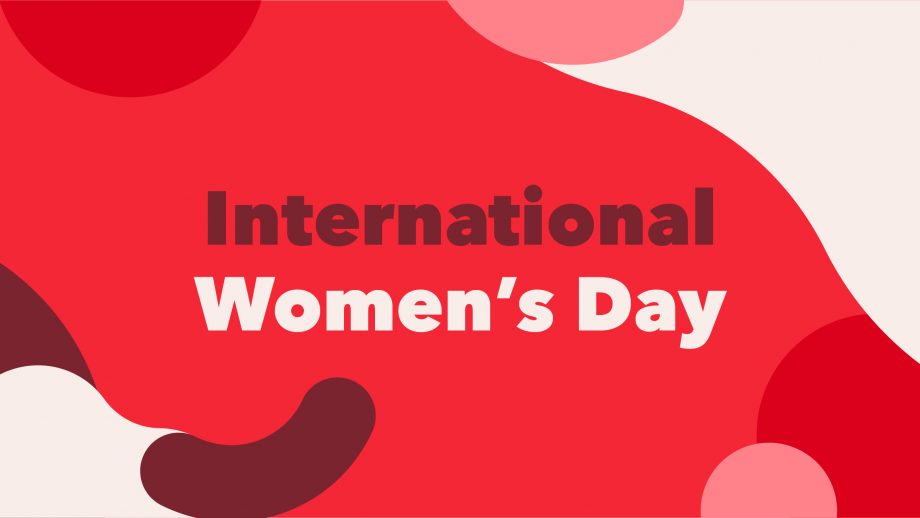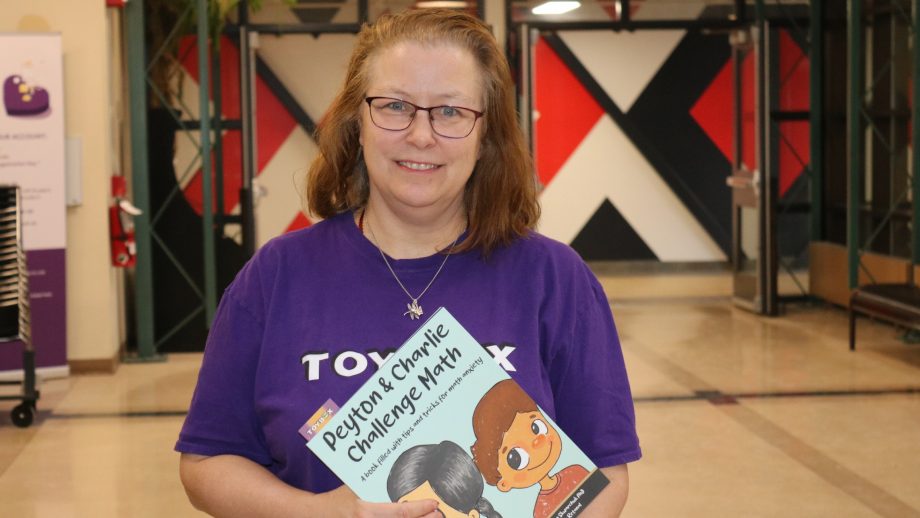A second round of testing for the ToyBox project will soon be underway with the goal of having 800 Manitoba families participating.
The educational tool, which is designed to improve children’s numeracy, literacy, and wellness, has been in development for more than two years.
ToyBox creator and University of Winnipeg Professor Sheri-Lynn Skwarchuk says this next round of testing was made possible thanks to nearly $14,000 in Safe at Home Manitoba funding. The recently introduced grant program awarded more than 50 Manitoba organizations and businesses money for creating programs that can be done while physically distancing.
“Our plan is to release tips in literacy, numeracy, and wellness during the winter months,” Skwarchuk, the Director of Developmental Studies, explained. “We’re looking for public involvement because while the strategies have been carefully vetted by our research and education teams, we need to hear how these strategies work with children.”
The project is open to all Manitoba families with children aged two-to-eight years.
Our project includes a wellness component because we want families taking care of themselves.
Dr. Sheri-Lynn Skwarchuk
Testing will be split into two six-week blocks with everything wrapping up at the end of March. Participants will receive a literacy tip each Monday, a wellness tip each Wednesday, and a numeracy tip each Friday.
A new addition to this round of testing is the inclusion of families in Northern Manitoba. While they are still in the process of deciding how the strategies will be delivered, including via physical copies, email, and/or Facebook, Skwarchuk noted the importance of diversity in testing the strategies to find out what works best for Manitobans.
“This is a project to help meet the needs of our community,” Skwarchuk said. “These are tips that you can take with your own resources, during your own time, and use them in the best way that you feel will be helpful for your children.”
ToyBox helps by giving parents more ideas that they can add to their already existing set of go-to activities for their children, or add depth to what they are already doing.
While the ToyBox project has always focused on literacy and numeracy, wellness strategies have been an important addition, especially during the COVID-19 pandemic.
But the wellness tips are not just for children — they’re also for the parents.
“While parents may have more time due to the pandemic, they are also affected by mental health issues and various kinds of insecurities, including income and food,” Skwarchuk said. “Our project includes a wellness component because we want families taking care of themselves.”
If you’d like to sign your family up for the ToyBox project, email Skwarchuk at toybox@uwinnipeg.ca.

